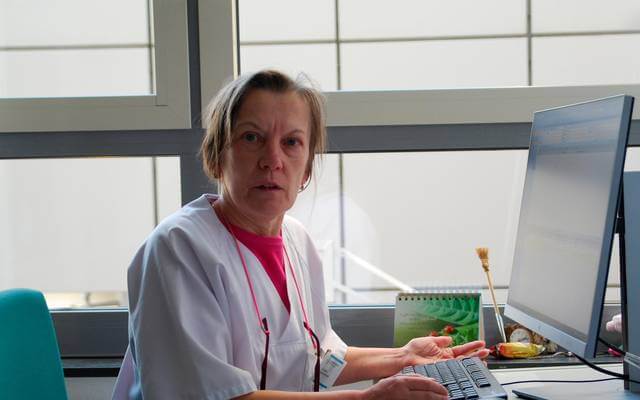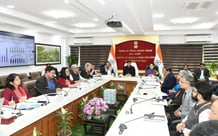
Wetteraukreis (TEH). Knowing the causes of the spread of epidemics and epidemics is one of the great medical achievements of today. In the hospitals of the 18th century, one out of five patients died, among other things because of what are, from today’s perspective, inadequate hygienic conditions. From 1850, the hypothesis of air contaminated with disease-causing microbes developed. The use of agents such as carbon to disinfect wounds, devices, and hands subsequently led to a drastic reduction in the infection rate in hospitals.
Even in modern medical facilities, the now much higher standard of hygiene is constantly being revised and adapted to new findings. The goal: to further reduce the number of nosocomial infections (acquired in the hospital or during an inpatient medical measure). For Edith Banciu, dealing with hygiene regulations is everyday business. As one of three hygiene specialists in the Wetterau Health Center (GZW), she is responsible for implementing the standards in day-to-day business. During the Corona crisis, she noted an increased need for advice among GZW employees.
She regularly monitors compliance with the requirements by nurses, doctors and cleaning staff in the wards, in the functional areas and of course in the operating room. “In the meantime, the provisions have become so extensive and detailed that their implementation is a challenge in everyday life. Besides, there are always innovations that are naturally trained, but always raise specific questions in practice,” the hygiene specialist describes an essential part of her area of responsibility.
Since the departmental rehabilitation of bed sections in the Friedberg Citizens’ Hospital and the Bad Nauheim Hochwald Hospital began two years ago, an important field of activity has been added: construction site inspection. This is primarily about avoiding dust pollution in adjacent corridors and patient rooms. To do this, the dust walls must be intact and the doors leading to the construction site must remain closed.
The third essential area of responsibility for hygiene specialists is infection monitoring. This includes the input screening of patients at special risk groups for any MRSA or MRGN germs and, if they are found, the arrangement of isolation measures – and of course this now also includes all measures that are taken to diagnose and treat corona patients.
Since the onset of the corona crisis, Edith Bancius’ consulting work has mainly focused on the practical effects in everyday clinical practice. The 60-year-old has been around for a long time and is known accordingly. “I am the liaison between the employees, the GZW Corona crisis team and the authorities, with whom we work very trustingly even in the crisis,” she explains. On request, it explains details of the constantly updated provisions and how to use them in practice to the individual employees.
A hot topic is the use of protective masks. The classic surgical masks are currently booming. “But they are a single-use product, so they no longer moisturize and protect,” says Banciu. In contrast to the disposable FFP2 or FFP3 masks equipped with filters, they do not protect the wearer anyway, but only the person opposite him. “The FFP masks are not necessary in everyday life. They should be left to the doctors and nurses who have contact with suspected or actual COVID 19 cases of infection,” emphasizes the specialist.
She also believes that the self-sewn cotton mouth-nose covers are a good alternative for non-medical areas and the private environment. Important here: “”These coverings also moisturize after a certain time and could then quickly become virus spinners. On the other hand, it helps to wash them in the evening at least 60 degrees and with a detergent in the washing machine or a pan on the stove with a little washing powder cook for about ten minutes, then let it dry and use it the next morning. “













